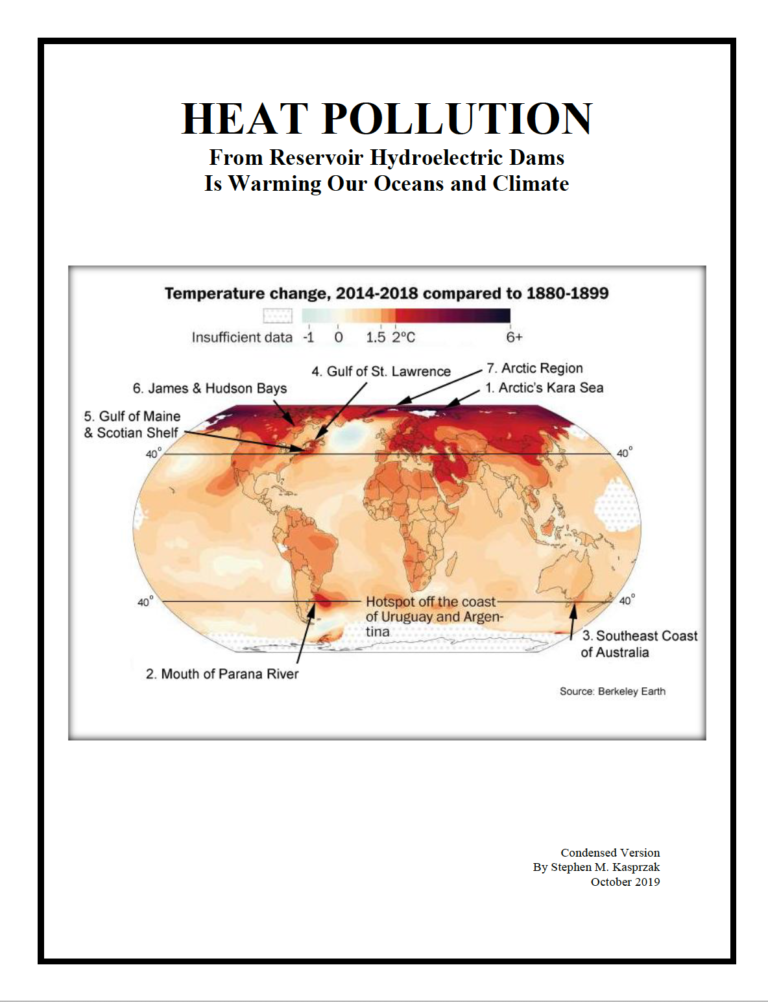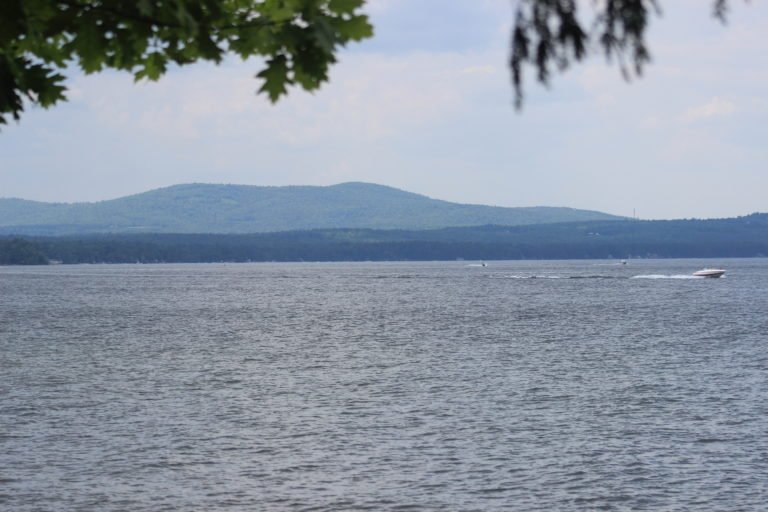Friends of Sebago Lake
Re: Report by Stephen Kasprzak , “Reservoir Hydroelectric Dams – ‘Silica Depletion -A Gulf of Maine Catastrophe”
A call for action by Friends of Sebago Lake
A Gulf of Maine catastrophe is occurring and it will become worse. The report by Stephen Kasprzak , “Reservoir Hydroelectric Dams – Silica Depletion -A Gulf of Maine Catastrophe”, is a wakeup call for the recognition of the statistically staggering seasonal changes in the timing, volume, and duration of freshwater river outflows created by Quebec Hydro and other Canadian dam owners.
Seasonal timed freshwater flow into the receiving waters of the Gulf of Saint Lawrence and Labrador Current is the keystone factor in creating multiple conditions that must align for the Gulf of Maine ecosystem to function at its historic superior level. This is the first report to our knowledge that clearly explains the degree and expanse of this unnatural freshwater flow that is present today. Unnatural and altered freshwater flow is a worldwide problem but nowhere else over such a vast area as in Canada has so much freshwater flow been impacted. This report focuses on silica depletion created by mainly Canadian hydropower facilities and its impacts on diatom plankton which are the foundation of the Gulf of Maine ecosystem. Because of silica depletion and nutrient flux changes, a cascading and expanding number of harmful impacts are occurring. Silica depletion, decline of the fishery, ocean acidity and record temperature changes in the Gulf of Maine water column can all be directly interlinked to this present hydro generation flow regulation. Since the last ice age the Gulf of Maine’s silica and diatom based ecosystem has developed into a natural superior engine thats harvests carbon dioxide and releases oxygen to the atmosphere. Reservoir dams are robbing this engine’s ability to ameliorate harmful climate impacts of fossil fuel combustion.
In 2010, Friends of Sebago Lake (FOSL) brought attention to the impacts of unnatural freshwater flow by dams on Maine estuaries and adjacent coastal areas. Specifically, we found that the post 1986 regulation of the Eel Weir Dam FERC project 2984- Sebago Lake was harming Sebago Lake, the Presumpscot River, and Casco Bay water quality and ecosystems.
Maine State Agencies and The Federal Energy Regulatory Commission ignored the findings of FOSL’s compilation of existing scientific work. The record of FOSL information furnished to these government agencies can be found on FERC library <https://elibrary.ferc.gov/IDMWS/search/ fercgensearch.asp> The docket number is P-2984.
Our requests for study of the post 1986 unnatural freshwater flow impacts on climate regulating diatom populations and fisheries of Casco Bay were denied. Now in 2018, we read in newspapers and witness on TV news about how dire the scientific climate change predictions have evolved. In Canadian and US studies of dam impacts on marine fisheries and ecosystems, the subject of present changes in freshwater flow is conspicuously absent or only mentioned briefly.
The links between declining healthy diatom populations and the permanent carbon dioxide removal from the atmosphere and seawater are unknown to the general public. Economies and human populations are predicted to suffer from climate change and billions will be required to protect coastal infrastructure. In the very least, unbiased scientific study free from special interest influence about the harm from hydro dams regulation on freshwater and marine ecosystems and its influence on regional and world climate should become a priority. If natural freshwater flows and healthy diatom populations are not restored the reduction of fossil fuel consumption will have little impact on the dire atmospheric carbon dioxide level trend.
This press statement has been issued to support the continuing effort of the mission of the Friends of Sebago Lake to inform the public about the harmful impacts of unnatural freshwater flow on freshwater and marine ecosystems.
Click HERE to view Stephen’s report



